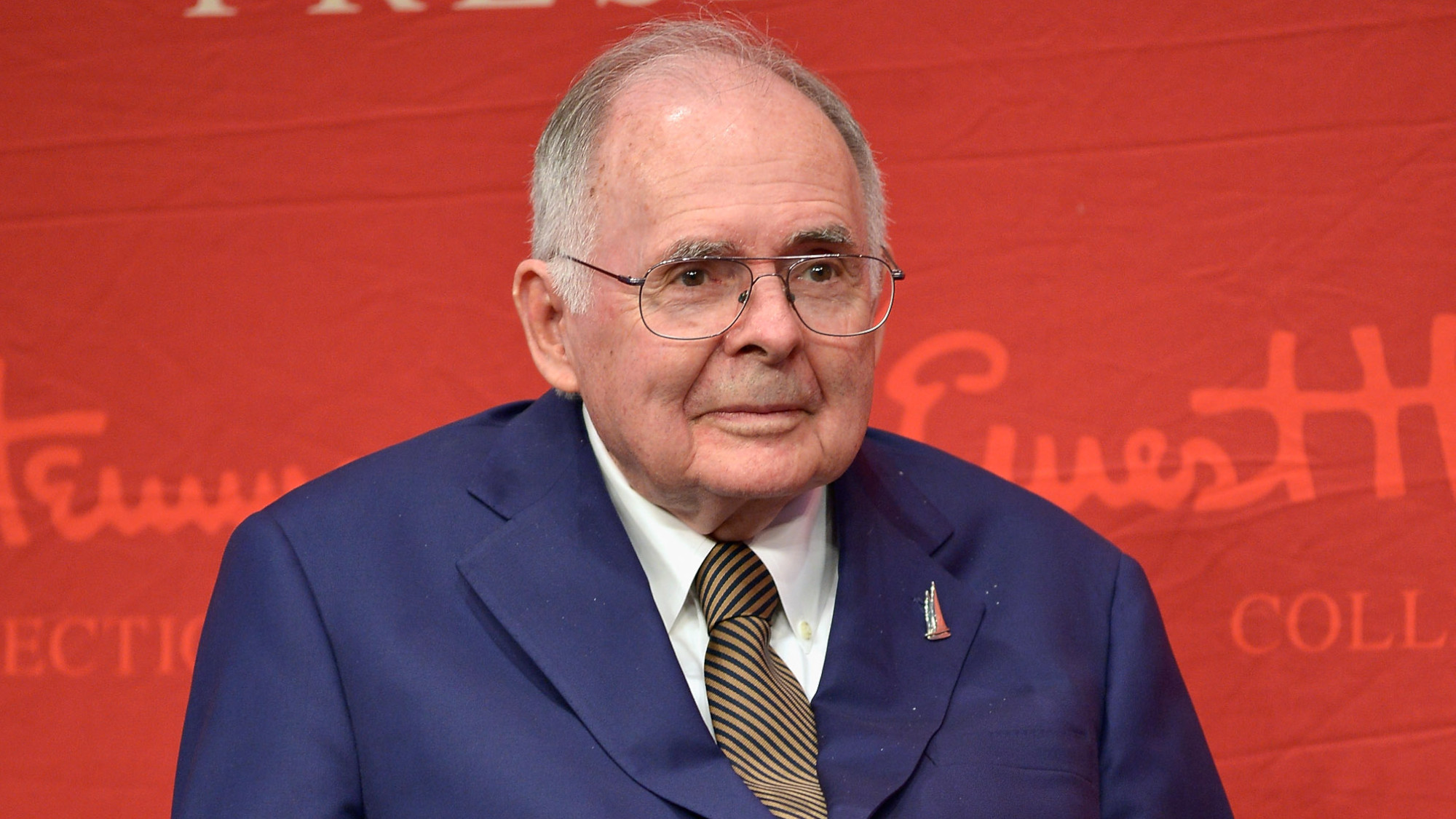Don Tyson, 1930-2011
The ‘dumb chicken farmer’ who built a food empire
A free daily email with the biggest news stories of the day – and the best features from TheWeek.com
You are now subscribed
Your newsletter sign-up was successful
Don Tyson hated to let any part of a chicken go to waste. While his vast network of processing plants stocked America’s meat counters with chicken breasts, wings, and drumsticks, they used the feathers, blood, and internal organs in pet food and shipped the feet to China, where they’re used in soup stock. But Tyson had little success finding a use for the gizzard, a small, muscular pocket in the bird’s digestive tract. A scheme to add hamburger flavor to gizzards and sell them as a novelty food fell flat. So Tyson contacted someone he knew who worked in corrections, and together they hatched a plan to feed gizzard burgers to prisoners. After inmates sampled them for the first time, Tyson’s acquaintance called him and said, “Don, if we try to serve ’em again, these prisoners are gonna riot.”
Born in Olathe, Kan., Tyson was raised in Arkansas, where he took over the family business after his father and stepmother’s car collided with a train. Although he liked to describe himself as a “dumb chicken farmer,” Tyson turned a small family feed and hauling business into a global food empire, said The Wall Street Journal. He was a ruthless, risk-taking entrepreneur who built on his father’s strategy of controlling all facets of chicken production “to create a national brand of meat, something that few packers had dared to do.” He was one of the first to recognize that the parts of a chicken, when processed and conveniently packaged, could be worth more than the whole. “He took boring old chicken and turned it into the thousands of chicken products we have now,” said industry consultant Paul Aho.
As Tyson Foods grew, its products “became the answer to a daily question: What’s for dinner?” said The Washington Post. By the 2000s, some 6,000 different products bore the Tyson brand, and the company supplied chicken to Burger King and KFC. When McDonald’s was looking for a new poultry product to serve its millions of customers, it worked with Tyson to develop Chicken McNuggets.
The Week
Escape your echo chamber. Get the facts behind the news, plus analysis from multiple perspectives.

Sign up for The Week's Free Newsletters
From our morning news briefing to a weekly Good News Newsletter, get the best of The Week delivered directly to your inbox.
From our morning news briefing to a weekly Good News Newsletter, get the best of The Week delivered directly to your inbox.
But Tyson didn’t “put Arkansas on the world map for poultry” without ruffling some feathers, said the Arkansas Democrat-Gazette. Family-farm advocates assailed him for the tight control he exerted over chicken producers, and environmentalists criticized his operations for allowing waste to pollute local water supplies. In 1997 Tyson pleaded guilty, on behalf of his company, to federal charges of giving illegal gifts to Mike Espy, Agriculture secretary under President Clinton. The company paid $6 million to settle the charges.
Stepping down as CEO in 1991, Tyson remained chairman of the board until 1995. He maintained an office at the company’s headquarters in Springdale, Ark., showing up for work in the khaki coveralls worn by the company’s line workers. The name stitched on his shirt read simply “Don.”
A free daily email with the biggest news stories of the day – and the best features from TheWeek.com
-
 The ‘ravenous’ demand for Cornish minerals
The ‘ravenous’ demand for Cornish mineralsUnder the Radar Growing need for critical minerals to power tech has intensified ‘appetite’ for lithium, which could be a ‘huge boon’ for local economy
-
 Why are election experts taking Trump’s midterm threats seriously?
Why are election experts taking Trump’s midterm threats seriously?IN THE SPOTLIGHT As the president muses about polling place deployments and a centralized electoral system aimed at one-party control, lawmakers are taking this administration at its word
-
 ‘Restaurateurs have become millionaires’
‘Restaurateurs have become millionaires’Instant Opinion Opinion, comment and editorials of the day
-
 Catherine O'Hara: The madcap actress who sparkled on ‘SCTV’ and ‘Schitt’s Creek’
Catherine O'Hara: The madcap actress who sparkled on ‘SCTV’ and ‘Schitt’s Creek’Feature O'Hara cracked up audiences for more than 50 years
-
 Bob Weir: The Grateful Dead guitarist who kept the hippie flame
Bob Weir: The Grateful Dead guitarist who kept the hippie flameFeature The fan favorite died at 78
-
 Brigitte Bardot: the bombshell who embodied the new France
Brigitte Bardot: the bombshell who embodied the new FranceFeature The actress retired from cinema at 39, and later become known for animal rights activism and anti-Muslim bigotry
-
 Frank Gehry: the architect who made buildings flow like water
Frank Gehry: the architect who made buildings flow like waterFeature The revered building master died at the age of 96
-
 R&B singer D’Angelo
R&B singer D’AngeloFeature A reclusive visionary who transformed the genre
-
 Kiss guitarist Ace Frehley
Kiss guitarist Ace FrehleyFeature The rocker who shot fireworks from his guitar
-
 Robert Redford: the Hollywood icon who founded the Sundance Film Festival
Robert Redford: the Hollywood icon who founded the Sundance Film FestivalFeature Redford’s most lasting influence may have been as the man who ‘invigorated American independent cinema’ through Sundance
-
 Patrick Hemingway: The Hemingway son who tended to his father’s legacy
Patrick Hemingway: The Hemingway son who tended to his father’s legacyFeature He was comfortable in the shadow of his famous father, Ernest Hemingway